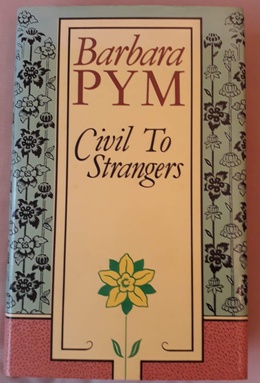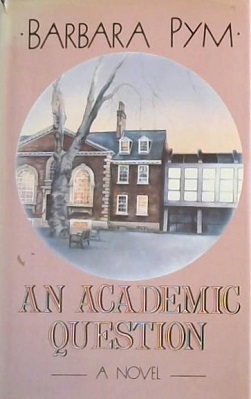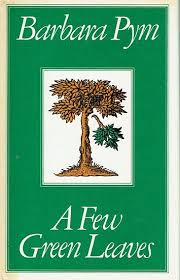Barbara Mary Crampton Pym was an English novelist. In the 1950s she published a series of social comedies, of which the best known are Excellent Women (1952) and A Glass of Blessings (1958). In 1977 her career was revived when the critic Lord David Cecil and the poet Philip Larkin both nominated her as the most underrated writer of the century. Her novel Quartet in Autumn (1977) was nominated for the Booker Prize that year, and she was elected as a Fellow of the Royal Society of Literature.

Excellent Women, the second published novel by Barbara Pym, first appeared from Jonathan Cape in 1952. A novel of manners, it is generally acclaimed as her funniest and most successful in that genre.

Quartet in Autumn is a novel by British novelist Barbara Pym, first published in 1977. It was highly praised and shortlisted for the Booker Prize, the top literary prize in the UK. This was considered a comeback novel for Pym; she had fallen out of favour as styles changed, and her work had been rejected by publishers for 15 years. This followed her successful record as a novelist during the 1950s and early 1960s. As a novel, it represents a departure from her earlier style of light comedy, as it is the story of four office workers on the verge of retirement.

Some Tame Gazelle is Barbara Pym's first novel, originally published in 1950.
Dora Jessie Saint MBE , née Shafe, best known by the pen name Miss Read, was an English novelist and, by profession, a schoolmistress. Her pseudonym was derived from her mother's maiden name. She is best known for two series of novels set in the English countryside – the Fairacre novels and the Thrush Green novels.

No Fond Return of Love is a novel by Barbara Pym, first published in 1961.
(John) Robert Liddell was an English literary critic, biographer, novelist, travel writer and poet.
Hazel Holt was a British novelist.

Less Than Angels is a novel by Barbara Pym, first published in 1955.

A Glass of Blessings is a novel by Barbara Pym, first published in 1958. It deals with the growing estrangement of a well-to-do married couple and the means by which harmony is restored.

Crampton Hodnet is a comic novel by Barbara Pym, published posthumously in 1985, and originally written in 1940.

An Unsuitable Attachment is a novel by Barbara Pym, written in 1963 and published posthumously in 1982.

Paula Jayne Byrne, Lady Bate, is a British biographer, novelist, and literary critic.

The Sweet Dove Died is a novel by Barbara Pym, first published in 1978. The title is a quotation from a poem, "I Had a Dove", by John Keats.
Prudence is a feminine given name. The name is a Medieval form of the Latin Prudentia, meaning prudence, i.e. good judgment.
Honor Ellen Wyatt was an English journalist and radio presenter, known for her association with Barbara Pym, Robert Graves, and Laura Riding as well as for her own work. She was the mother of the actor Julian Glover and the musician Robert Wyatt.

Civil to Strangers and Other Writings is a collection of novels and short stories by Barbara Pym, published posthumously.

An Academic Question is a novel by Barbara Pym, written in the early 1970s and published posthumously in 1986.

A Few Green Leaves is the final novel by Barbara Pym, first published in 1980, the year of Pym's death. Although several novels were published posthumously, A Few Green Leaves was the final novel she worked on.
Claud Gordon Glover was a British writer, particularly for radio, as well as some novels.













